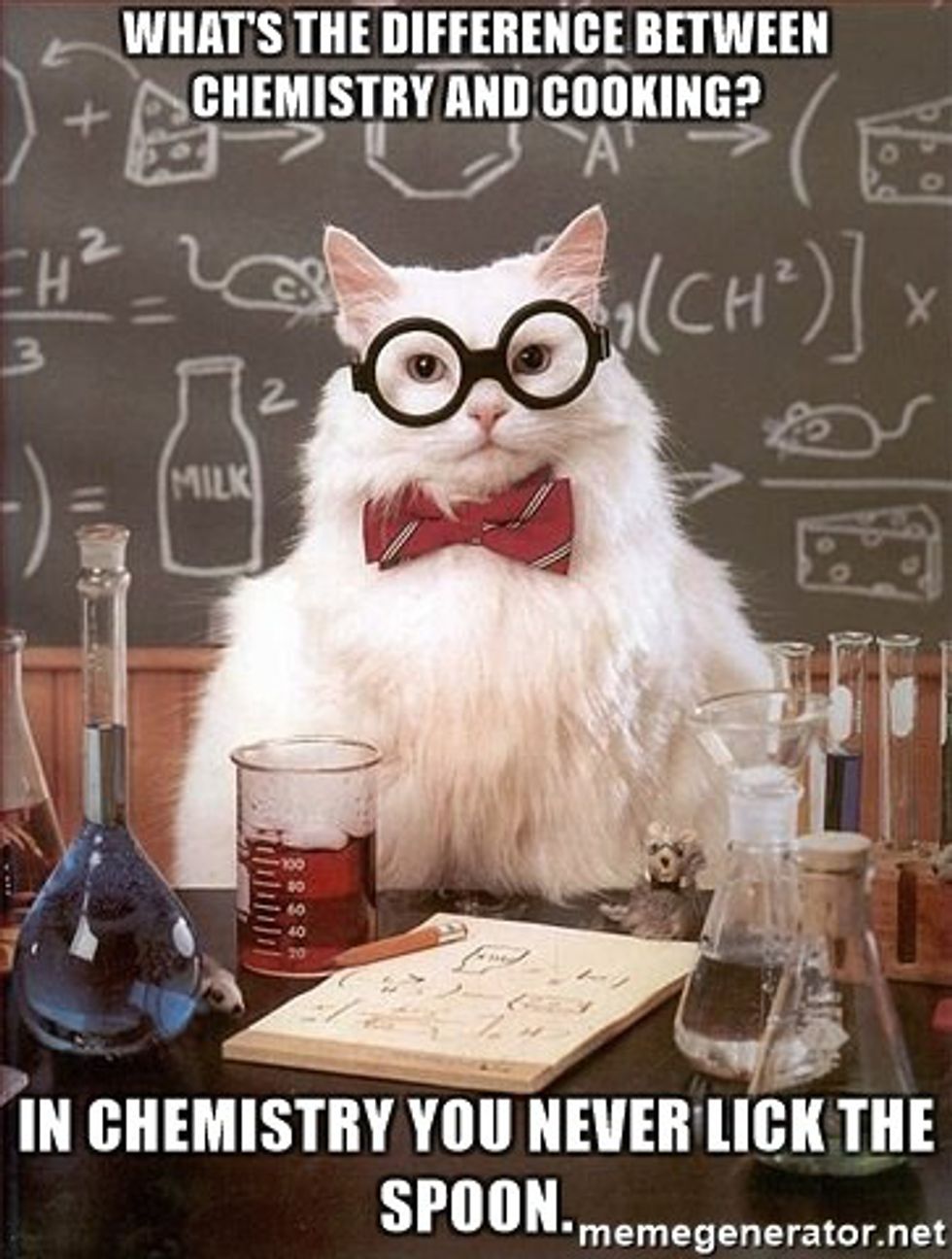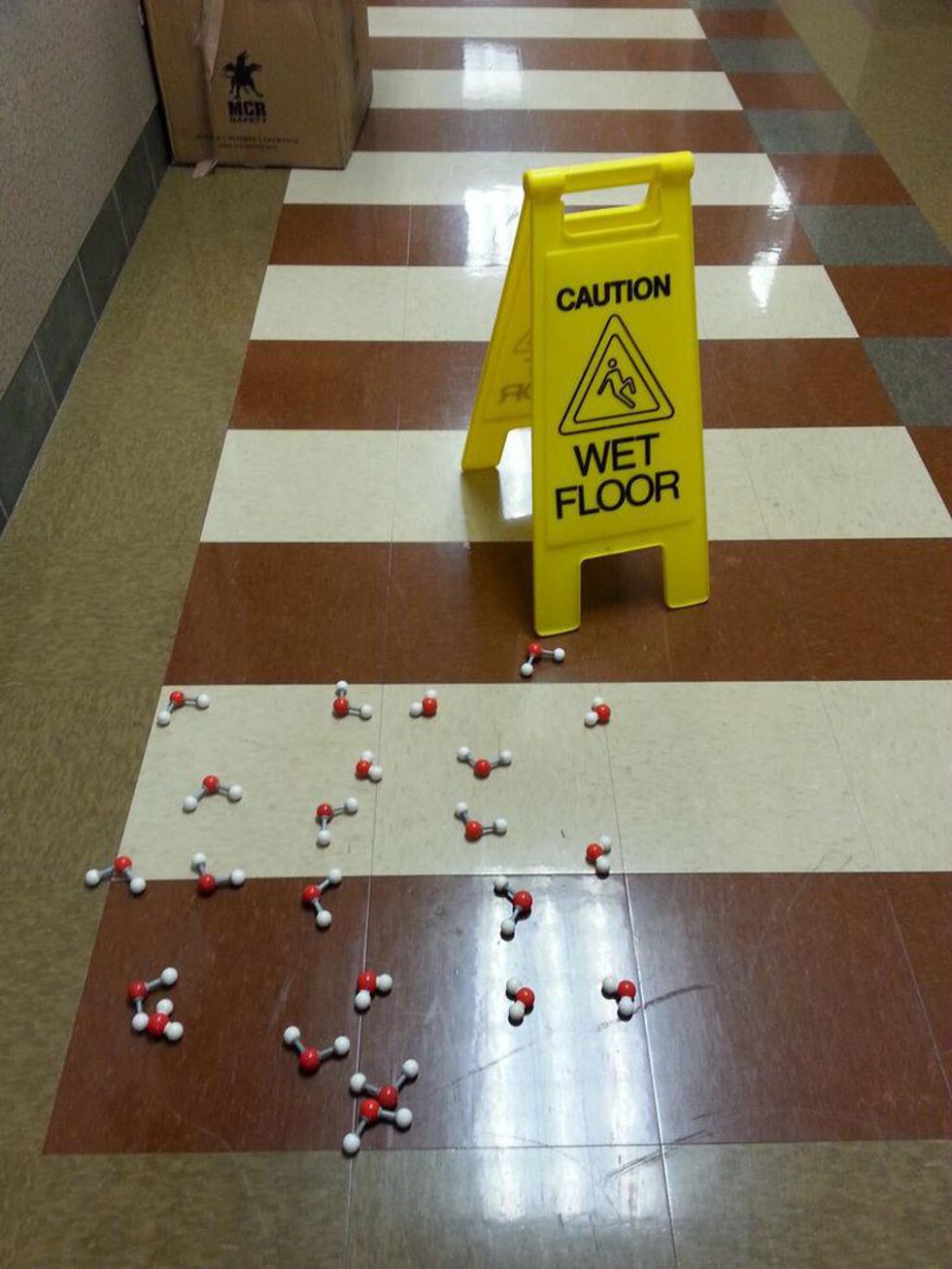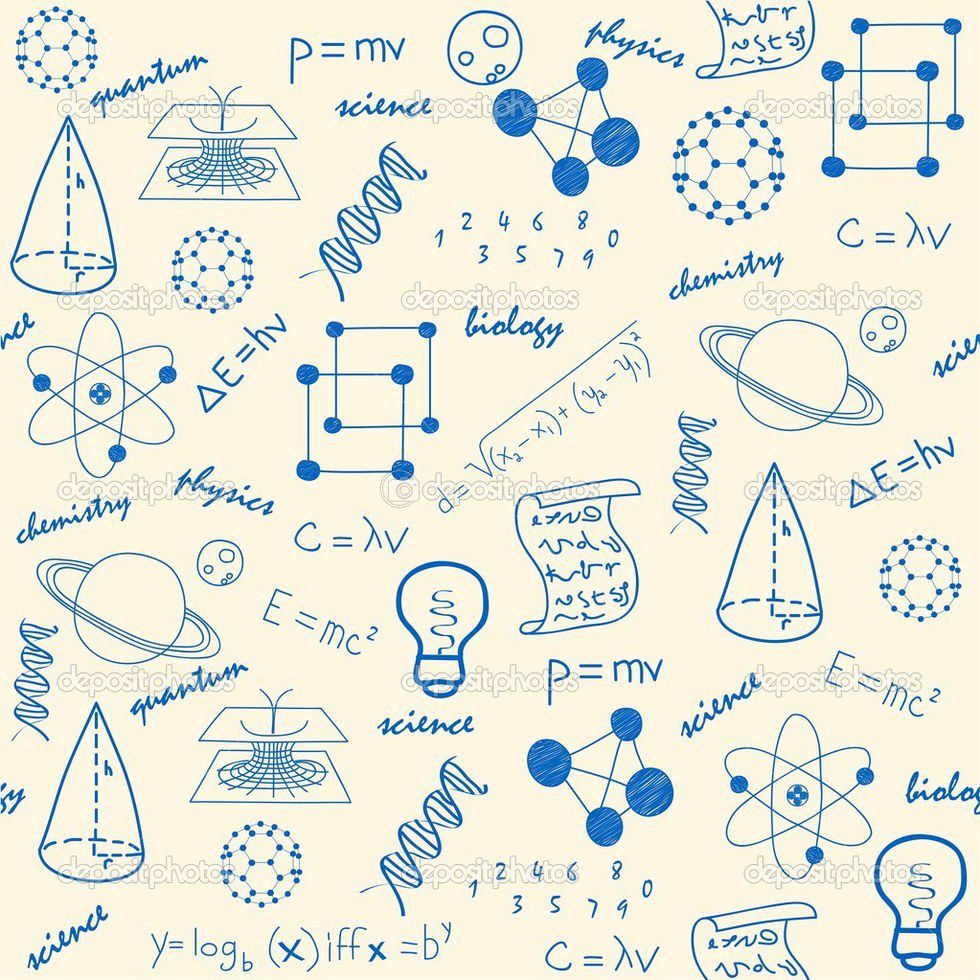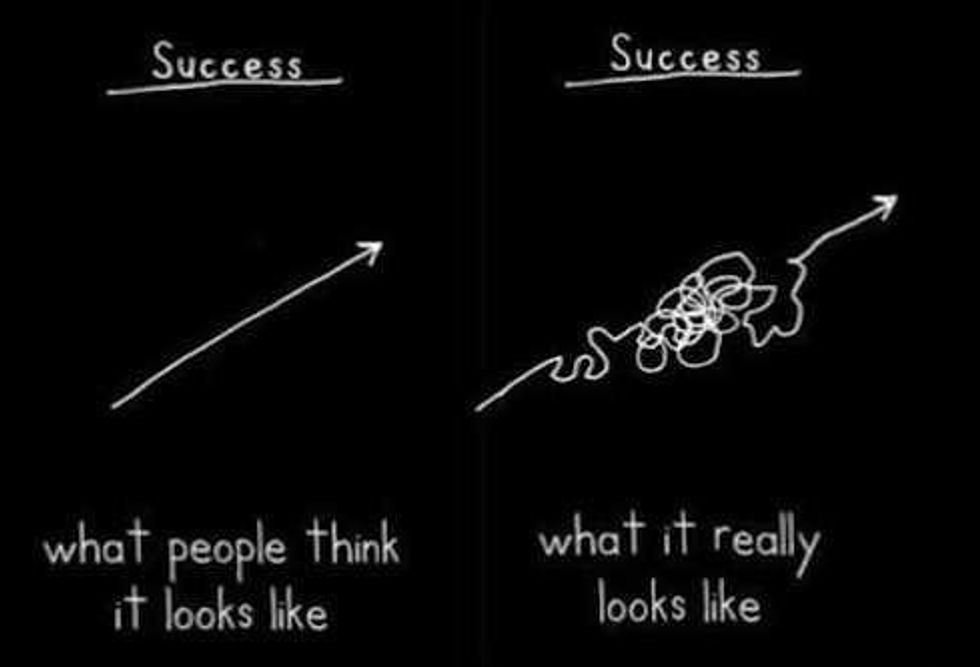Life in the sciences isn't easy. You learn the importance of cis-platinum (II) chloride diammine, how to calculate the degree that a pencil will look bent when you drop it in water, and how to identify all the species of oak in a forest. Learning the typical scientific information is expected, and is actually the easy part of being a science major at times. But what else do you learn outside of the textbooks?
1. Communication Skills
It's the first day of physics. The professor announces a group work activity, and you hear everyone shifting their eyes to the ground in desperation. The guy sitting by you announces that he would prefer to be in a class all by himself. Oh boy... But you break the ice, start talking about math and science (the common language) and discover that everyone can actually talk, and slowly you become friends. Or colleagues. Depends on the day.
2. Cooking
Add 50 mg of starting material, 5 mL of toluene, 2 drops of base, an equivalent of the nitrile, and stir at 50 degrees for 3 hours.
Preheat oven to 350. Combine flour, sugar, water, eggs, and spices. Bake for 35 mins.
If you can do lab science, you can cook. You can probably cook better than most people. We are not even getting into all the ways to make food using liquid nitrogen.
3. Science is basically a playground.
What, you've never thrown the extra liquid nitrogen in the air just to watch it fall? Or used balloons for purposes other than keeping a reaction under nitrogen? Or dropped a household object in acid just to see what would happen? Or walked in to your lab mates using blown-up rubber gloves as chickens? Fun is a must, or your mind will explode.
4. How to get along with people
You spend a lot of time together with fellow scientists, especially those within your discipline- sometimes too much time. At the end of the day, you may not like each other, but you're still partners working together, and you learn to appreciate each other's differences.
5. Drawing legibly-ish
If there's one thing you learn in organic chemistry, you learn to draw hexagons. Also, scientists get really good at drawing circuits and diagrams in general. At least, you are an expert at describing what you really mean by the squiggly lines and disproportionate shapes.
6/7. Perseverance and patience
Science is hard. Experiments and math do not always (usually) work out the first time you look at a problem. But you keep going; you cannot just throw in the towel. Often, we learn more from our mistakes than when everything works perfectly the first time, but that's life.
8. How to function [well] on virtually no sleep
It's 2 A.M. You know everyone in the library- because, guess what, they're science or engineering majors. It's probably time to start that lab report due by noon. You strive to do it all, and do it well, but that doesn't come easy, and sleep is often the most manageable corner to cut. Of course, you swear to get more rest every time you're dying in a morning lecture. Yeah right.
9. Repay others when you can; you will need help sooner than you think.
As science majors, you're all in this together. You rely on each other and play off of each other's strengths (and weaknesses). As a group contributing to a whole, you are stronger than individuals, even if this does not come naturally. So when you see someone struggling, or debating on which class to take, or needing assistance figuring out which professor to research with, lend a hand. Lots of people have helped you along the way, and the community is stronger when we have the mindset of working together and using our expertise to help one another.
10. Fire safety is not something to be learned in the moment.
Some things are best figured out on a moment to moment basis. Fire safety, or general lab safety, is not one of them. Science teaches you how to plan ahead, be proactive, and solve life problems both as an individual and as a team.




























